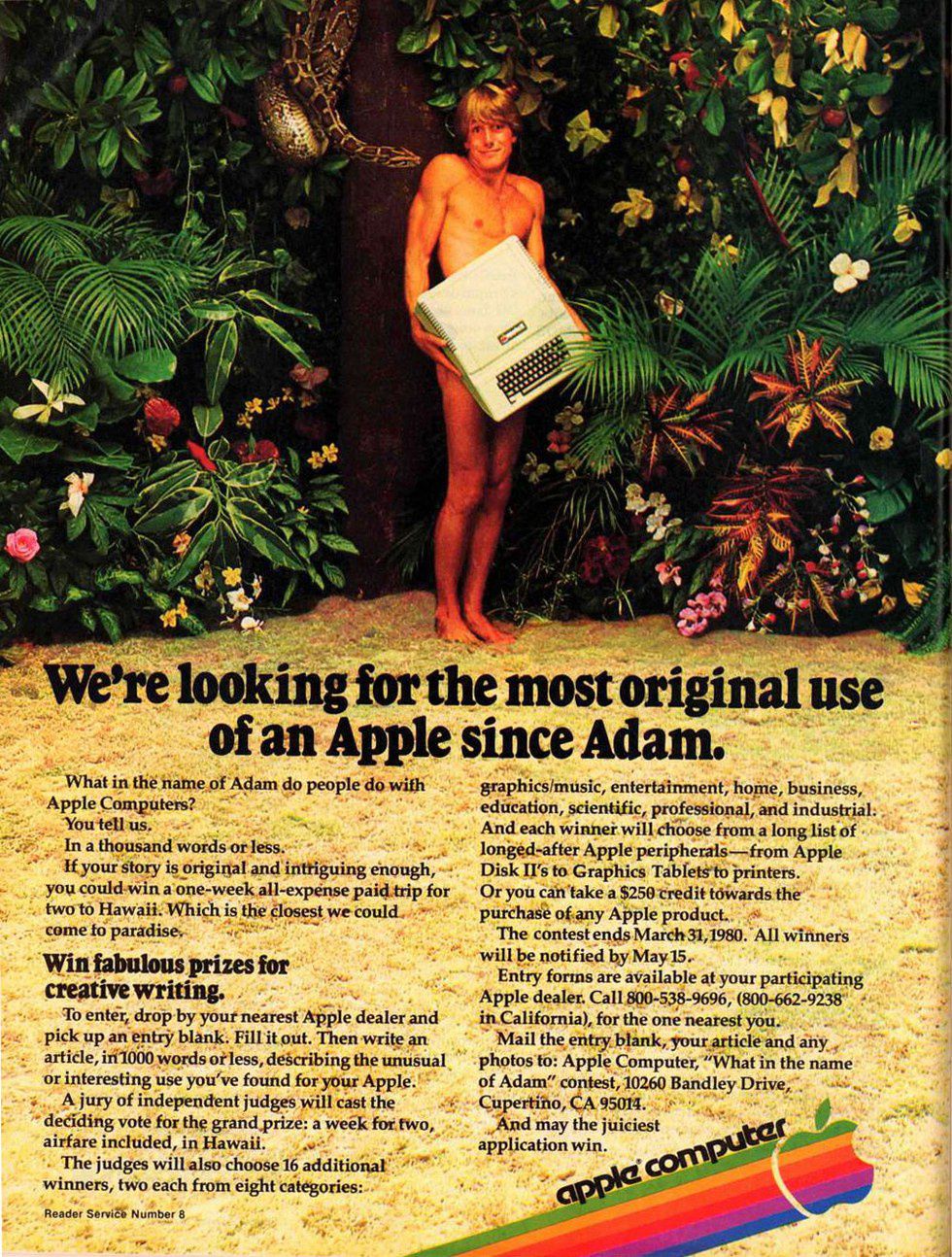During a 60-second commercial slot in the third quarter of Super Bowl XVIII, Apple launched an ad campaign for their Macintosh personal computer with a controversial, historical commercial whose roots, some 31 years later, are still tantalizingly relevant.
In November 1981, IBM entered the personal computer market, but not before Apple became the fastest growing business in American history, and the Apple II became the world’s most popular computer.
During a 1983 keynote speech, Steve Jobs addressed Apple employees to reveal their bombshell advertisement. In his late twenties, a polo-clad Jobs began listing off IBM’s failures to adjust to evolving cutting edge technology: notably dismissing Xerox, the mini-computer initially, and the Apple II personal computer. In 1983, each company sold roughly $1 billion of personal computers.
“It is now 1984,” Jobs said, looking to the not-so-distant future, “It appears IBM wants it all. Apple is perceived to be the only hope to offer IBM a run for its money. Dealers, initially welcoming IBM with open arms, now fear an IBM-dominated and controlled future. IBM wants it all and is aiming its guns on its last obstacle to industry control: Apple. Will Big Blue [IBM's nickname] dominate the entire computer industry? The entire information age? Was George Orwell right about 1984?”
The advertisement that ran behind him, eventually destined for the bright lights of Super Bowl Sunday, was deemed the first case of “event marketing” – a promotional campaign that garners as much attention as the product being sold – by former Apple CEO John Sculley.
In this dystopian society, a Big Brother-esque leader praises the first anniversary of the “information purification directives” to stretches of mindless, personality-less onlookers.
The controlling totalitarian government in 1984 provides a fitting contrast to Apple who sought to free the people with technology, calling the Macintosh “a computer everyone can use.” It would be a breath of fresh air, just like the thoughtless patrons who, with the help of our sledgehammer-wielding Apple heroine, eventually saw the light.
Apple gave director Ridley Scott, whose works included Alien and Blade Runner, a $900,000 budget to create their dystopian universe. Scott hired the only actress he could find, former discuss-thrower Anya Major, who could safely handle the large sledgehammer during shooting, also auditioning actual British skinheads for the part of Big Brother.
Now hailed as one of the best advertisement of all time, the Apple Board of Directors were initially unanimous with disapproval. Shocked, lesser-known co-founder and early investor Mike Markkula Jr. replied, “who wants to move to find a new agency?”
Chait/Day, the advertising agency responsible for the ad, pushed back against the front office’s displeasure. Steve Wozniak offered to pay for half the spot himself if Jobs would take the other. While that never materialized, Apple’s bigwigs eventually came around, launching an all out 100-day media blitz beginning with the 1984 Super Bowl commercial that, in those three-plus months, resulted in Macintosh sales of $155 million.
In 1984 under Big Brother’s watchful eye, personal expression was muted so intensely that any anti-government, individualistic ideas – "thoughtcrime" – were illegal. Now, 31 years after the commercial ran, Apple’s revolution of personal computing devices has flung us as far across the spectrum as possible.
Our society does not crane our necks, looking up at an omnipresent ruler. Instead we look down, ruled by small glass screens with the mobility and technology capable of making any moment “go viral,” using them as a lifeline to capture and understand the outside world.
In a totalitarian society, individuality is lost. Yet, Apple promised to provide personality, uniqueness and a previously unmatched user-friendly attitude, fending off a future where big corporations own all the data. They believed that computing capabilities should, like George Constanza's Festivus, be for the rest of us; a proverbial power to the people mantra that continues to define their brand. A 1979 Apple II ad prompted users to send in "the most original use of an Apple since Adam," for the chance to win an all-expenses paid trip to Hawaii.
Yet in Apple's rush to oppose a future where corporations control all data and information, their organizational ideology has created a different version of the Orwellian society they so heroically overthrew in their ad. In order to utilize the full range of personal services Apple's products provide, an enormous amount of personal data is transmitted from you, the user. With Macintosh, it began with the ability to use simple programs for personal and creative use, the paint program for example. Now, it means GPS technology, internet history, and social media information that when combined provide an accurate portrayal of our personal lives and information.
Instead of being examined and manipulated at the end of a microscope like the citizens of 1984, we are the exact opposite. We are endlessly bombarded with information, decked out in social media armor, represented by an online persona that interacts with the outside world, somehow "legitimizing" the person we truly are through likes and shares.
In modern times, Big Brother doesn't have to purify minds to mute individuality, instead our experience of modern technology involves willingly, constantly sharing immense amounts of personal information with Apple, who sports the country's largest market capitalization (number of shares owned multiplied by current stock price), a firm baseline for determining the relative size of a company. Did they save the world from corporation-controlled information or, through endless technological updates marketed for and utilized in increasingly personal ways, do they know even more about their citizens than Big Brother knew in 1984?





















